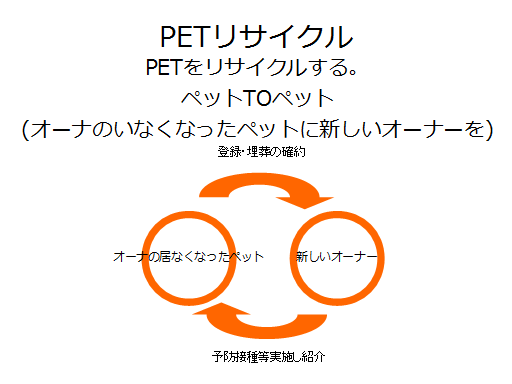これまで多くの日本人がイグ・ノーベル賞を受賞しており、日本人の論文が注目されているのはまちがいない。
しかし、賞金は0、さらに、授賞式への参加は自費というのは知らなかった。
しかし、こうした余裕は持ちたいものだ。
Yahoo!より、
海外では不名誉?38歳教授が見た「イグ・ノーベル賞」◆赤子救う「お尻呼吸」、MITで喝采【 #取材班インタビュー:武部貴則さん】
1/12(日) 11:01配信
時事通信
https://news.yahoo.co.jp/articles/3a364466008fd63186b1a15fe72410915e8376d2
記事より、
「哺乳類はお尻から酸素を取り込める」―。東京科学大の武部貴則教授(38)が率いる研究チームが、独創的でユーモラスな研究を表彰する「イグ・ノーベル賞」の2024年生理学賞に選ばれた。将来は赤ちゃんの命を救う可能性を秘めているという「お尻呼吸」。日米を行き来しながら多忙な日々を送る武部教授が、一時帰国した機会に、インタビューに応じてくれた。受賞の裏側や、ユニークな研究への思いを聞いた。(時事ドットコム取材班 長田陸)
◇笑わせ、考えさせる「哲学」
「お尻呼吸」を研究していた武部教授に「イグ・ノーベル賞に選ばれる可能性が高い。受けますか」というメールが、主催者側から届いたのは、24年3月のこと。呼吸不全になったブタやマウスの腸に酸素を送り込むと、酸欠状態が改善することを実験で証明し、21年に論文として発表していた。突然の連絡だったが、「周囲の研究者からは『イグ・ノーベル賞を取りそうな研究だよね』と言われていたので、冷静に受け止めました」と笑う。
イグ・ノーベル賞は、ノーベル賞のパロディとして、1991年に創設。米国の科学ユーモア誌「ありそうにない研究年報」が主催している。生理学や物理学の分野で「人々を笑わせ、考えさせる研究」が対象となる。過去には「バナナの皮を踏むとなぜ滑りやすいか」を解明した研究も受賞しており、受賞後に本家のノーベル賞に選ばれたケースもある。
コメント
日本人研究者がまたイグ・ノーベル賞を受賞したというニュースは、独創的な発想と挑戦を続ける日本の学術界の存在感を改めて感じさせます。武部貴則教授の「お尻呼吸」の研究は、一見ユーモラスに聞こえますが、呼吸不全に苦しむ赤ちゃんの命を救う可能性があるという重要な意義を持っています。このような研究が世界的に注目されることは、日本の研究者の地位向上にもつながるでしょう。
興味深いのは、このイグ・ノーベル賞の授賞式が自費参加で、賞金もないという点です。受賞そのものが名誉であり、研究に対するユーモアや哲学を世界に示す場としての価値があるのだと感じました。また、こうした余裕や柔軟な発想を学術界や教育にも取り入れたいものです。
これまでの日本人の受賞履歴を振り返ると、ユーモラスでありながら科学的な洞察に富んだ研究が多数あります。たとえば、2014年にはバナナの皮が滑りやすい理由を研究した馬渕清資教授が物理学賞を受賞、2012年にはカラスがクルミを車に轢かせて割る知能を解明した研究が受賞しています。また、2019年には「夜勤による体内時計の乱れがワサビの香りで修正できる」という研究が医学賞を受賞しました。
これらの研究は、私たちの日常に潜む疑問を科学的に解明しつつ、笑いや驚きを提供するもので、イグ・ノーベル賞が目指す「人々を笑わせ、考えさせる」精神を体現しています。こうした独創的な取り組みが続くことで、日本の科学の新しい可能性が広がることを期待しています。
Comment (English)
Another Japanese researcher has won the Ig Nobel Prize, once again highlighting the unique creativity and innovation of Japanese academia. Professor Takanori Takebe’s study on "butt breathing" may sound humorous at first, but its potential to save the lives of infants with respiratory failure makes it a groundbreaking contribution to science. Such recognition not only showcases the ingenuity of Japanese researchers but also raises their global profile.
Interestingly, the Ig Nobel Prize offers no monetary reward, and recipients attend the award ceremony at their own expense. This emphasizes that the honor lies in the acknowledgment of their work’s humor and philosophical impact, rather than financial gain. It’s a reminder of the value of approaching science with both seriousness and playfulness.
Looking back at the history of Japanese winners, their research often combines humor with scientific rigor. For instance, in 2014, Professor Kiyoshi Mabuchi won the Physics Prize for explaining why banana peels are slippery. In 2012, a study on how crows use cars to crack walnuts earned the award. More recently, in 2019, a medical study demonstrated that the scent of wasabi could help reset disrupted circadian rhythms caused by night shifts.
These studies reveal the fascinating and sometimes quirky nature of scientific exploration. They embody the spirit of the Ig Nobel Prize, which aims to "make people laugh, then think." As these unique efforts continue, we can look forward to new and exciting contributions from Japan to the global scientific community.
【このカテゴリーの最新記事】
-
no image
-
no image
-
no image
-
no image
-
no image
-
no image
-
no image
-
no image
-
no image
-
no image
-
no image
-
no image
-
no image
-
no image
-
no image
-
no image
-
no image
-
no image
-
no image
-
no image

